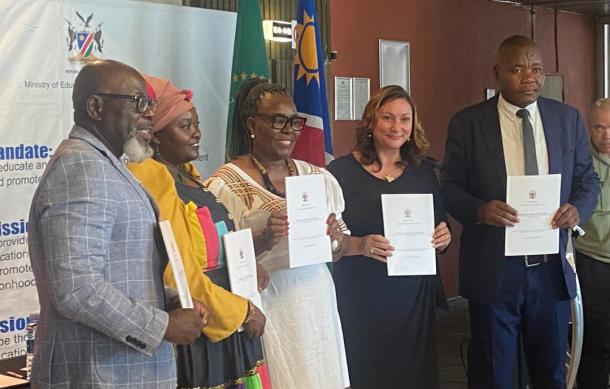
Arts and culture has for so many years been shifted to the back row of development priorities.
However, the revised launched policy of Arts, Culture, and Heritage identifies the sector as having a crucial role to play in the process of economic development.
The Ministry of Education, Arts, and Culture launched the revised policy 2026-2029/2030 in Windhoek today.
The Arts, Culture, and Heritage Policy will integrate, commercialise, and aggressively promote the sector.
The policy represents a critical step in strengthening Namibia's creative and cultural industries, fostering national identity, and positioning arts, culture, and heritage as drivers of sustainable development.
The policy will facilitate and promote closer collaboration between officers, ministries and agencies, non-governmental organisations, and those in the private sector and artists in particular.
It will also facilitate infrastructure development and enhance capacity building for better documentation, management, and protection of the arts, culture, and heritage for commercialisation purposes.
The Minister of Education, Arts, and Culture, Anna Nghipondoka, said the promotion and development of the arts and culture industries can enhance social development.
"The people should know and understand the content of any policy in order for them to be able to benefit from it. This one has the potential for anyone who never thought of venturing into cultural tourism, for example, to be able to understand what chances it brings forth. The policy will be used as one of the tools for Namibia to realise Vision 2030 and NDP6."
The policy is a result of wider consultations, which included regional inputs and will be reviewed every five years.





